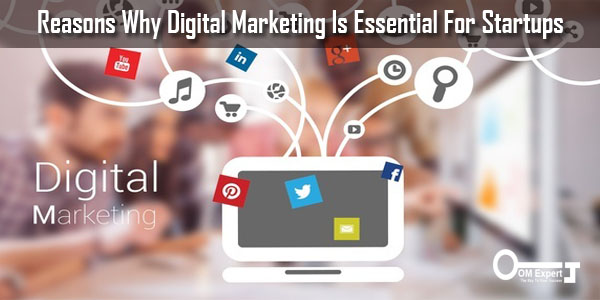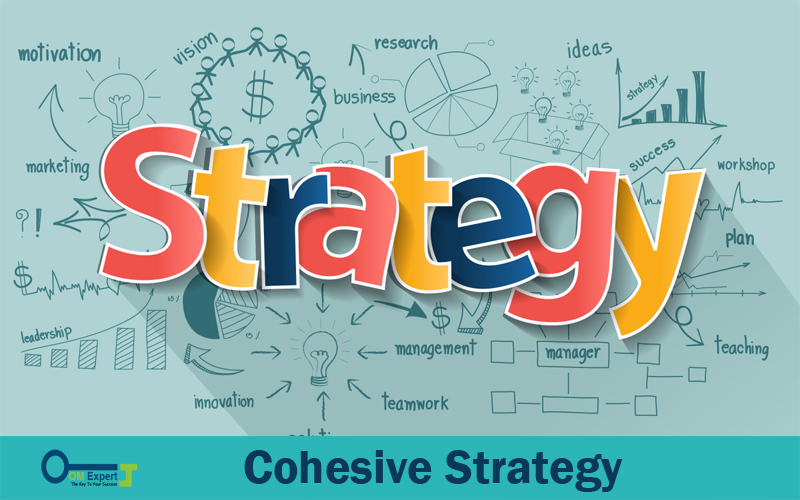New Brands are being launched every day and they are trying to keep pace with the dynamic consumer behavior. The competition, thus, is not just with each other, but also with the millions of marketing campaigns that consumers are inundated with every day.
New Brands are being propelled each day and they are attempting to keep pace with the dynamic buyer conduct. The opposition, subsequently, is with each other, as well as with the a large number of promoting effort that customers are immersed with consistently.
[ads2]
New Brands are being launched
The emphasis is hence on marketing operations involving skilled people, seamless processes and efficient technology. Startups usually operate on a shoe-string budget and are crunched for time. They need their marketing operations to enable them to digitize their most important customer experiences which will be scalable and agile at the same time.
Here are few points which will tell you that why digital marketing is really important for every startup:
1. It involves true engagement
Digital marketing has the capability to transform products and processes through technology and in a more cost-effective manner. This capability gives them the edge over other marketing channels and is exactly what a startup needs to grow and sustain in this highly competitive market.
Digital marketing brings them one step closer to target audiences through the developments that are breaking new grounds every day. Flipkart amongst world’s top 10 e-commerce websites in India today and it credits most of its traffic to its Social Media Marketing Strategies.
Their Social Media campaigns engage audiences with the events and happenings of the Company, like, product Launch, Acquisition etc.
2. It is a cohesive strategy
Marketing is no longer confined to selling products and services. Today it involves a process to build your brand. And that is what a new age entrepreneur envisions. He wants to see his brand stand tall amidst competition.
Contrary to traditional marketing strategy which relied on a single medium, digital marketing helps a brand grow and sustain by delivering an omnichannel customer experience with a technology that automates processes, personalizes interactions, and coordinates actions.
It operates on a large number of platforms, trying to reach everyone at every corner of the globe. Then be it by content marketing, social media marketing, email marketing or mobile marketing. Marketing research shows that over 65 percent of consumers are inclined to make a purchase in association with a well-planned email campaign.
3. Better understanding of customers
Getting to know your customers is a commitment and delivering what your customer wants is the need of the hour. Technology enables customer experience. Digital marketing not only facilitates a robust customer experience. It also tracks, monitors, analyzes and interprets the buying behavior and preferences of your target audience.
It not only brings forth what is critical for your end consumers, but also optimizes how your message is delivered to them- a very important capability, considering that during a buying process, a consumer adds an average of 1.7 brands to those they are considering.
With internet reaching every household in India today, where even newspapers might not reach, people out there are watching the world in their mobile phones and tablets. It is just a matter of time that most brands will give a huge push for digital marketing.
4. Use comprehensive metrics to drive success
Today the adoption rate of mobile is twice that of the internet, three times that of social media, and ten times faster than PCs. It is not only the new-age digital hub, but also a medium to bridge the gap to physical world. Hence, mobile marketing, which is an integral part of digital marketing strategy today is a critical aspect of the mix for online businesses, latter being the platform for most startups.
These are personalized, location-based and thus are extremely relevant giving marketers a tremendous amount of opportunity. Digital marketing uses a wide range of data coupled with sophisticated tools to analyze customer segments and their behavior, identifying opportunities and predicting future actions.
From the above discussion, it is clear that traditional marketing practices will soon be rendered obsolete. Therefore, when a startup is defining its marketing plan, it must incorporate a solid digital strategy.
Without a digital marketing strategy in place, new client acquisitions, brand visibility, and impactful revenue generating opportunities will likely be damaged. Only with a digital marketing strategy can a small company with very limited budget aspire to reach an audience of millions worldwide.



